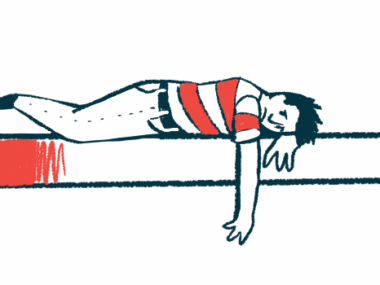CRN04894, now atumelnant, lowers urinary cortisol in patient group
Phase 1b/2a trial testing daily oral treatment for ACTH-dependent Cushing’s
Written by |

CRN04894, now being called atumelnant, quickly lowered urine cortisol levels in five people with ACTH-dependent Cushing’s syndrome taking part in a clinical trial, according to interim study findings.
The open-label Phase 1b/2a trial (NCT05804669), which is being conducted at the National Institutes of Health (NIH) in Maryland, still may be recruiting up to 18 adults, ages 18-75, with ACTH-dependent Cushing’s at that site.
Atumelnant’s developer, Crinetics Pharmaceuticals, believes these early data — which also showed reasonable safety — position atumelnant as a potential first-in-class treatment for forms of Cushing’s driven by excessive ACTH signaling, including Cushing’s disease.
“Achieving physiologically normal hormone levels is critical for people living with … ADCS [ACTH-dependent Cushing’s], and today’s data show an impressive ability of atumelnant to reduce key disease drivers,” Scott Struthers, PhD, founder and CEO of Crinetics, said in a company press release.
Atumelnant works to block ACTH interaction with adrenal gland receptors
The findings were presented in the poster, “Atumelnant (CRN04894) Induces Rapid and Sustained Reductions in Serum and Urine Cortisol in Patients with ACTH-dependent Cushing Syndrome During a Phase 1b/2a, Single Center, 10-day, Inpatient, Open-label Study,” at the recent Endocrine Society Annual Meeting (ENDO2024).
Cushing’s syndrome encompasses a group of disorders that arise when levels of the hormone cortisol are elevated for a prolonged time.
Cushing’s disease is due to tumors in the brain’s pituitary gland that produce adrenocorticotropic hormone, or ACTH, in excess, which in turn causes the adrenal glands atop the kidneys to make too much cortisol. It’s the main form of ACTH-dependent Cushing’s that, more rarely, is caused by ACTH-producing tumors found outside the pituitary gland.
Atumelnant is a once daily oral medication that’s designed to block ACTH’s interaction with melanocortin type 2 receptors in the adrenal glands. These interactions are what prompt the adrenal glands to make cortisol. In so doing, the therapy aims to lower cortisol levels and ease the symptoms of ACTH-dependent Cushing’s.
The investigational medication until recently was called CRN04894; atumelnant is under review as its proposed international generic name.
“Despite knowing about ACTH’s pivotal role in the endocrine stress response for nearly a century, no other ACTH antagonist drug candidates have been developed and studied in humans,” Struthers said.
Findings from a Phase 1 trial showed that atumelnant led to dose-dependent drops in blood and urine cortisol levels among healthy volunteers, prompting the launch of the Phase 1b/2a study that is being conducted in collaboration with the NIH.
Trial participants are expected to be split into three dosing groups of six patients each, all treated daily for 10 days. The first two groups will receive 80 mg and 120 mg daily doses, with the final dose to be selected based on results from the initial two groups.
A main study aim is to assess the safety and pharmacological properties of the medication. Changes in cortisol levels are also being monitored.
Urinary free cortisol levels of treated patients fell to within normal range
The recent presentation concerned five trial participants in the 80 mg dose group who completed the 10-day treatment course. These patients, four of whom were men, had a median age of 47.
Urinary free cortisol levels measured over 24 hours dropped into the normal range for all five patients. After the treatment period ended, levels started to rise again.
Moreover, each patient reported that at least two of their Cushing’s symptoms eased while using atumelnant. These included symptoms of insomnia, irritability, poor concentration, anxiety or depression, and high blood pressure.
“The first 5 patients with ADCS to receive once daily, oral atumelnant experienced rapid lowering of serum and urine cortisol and improvement or resolution of some signs and symptoms of ADCS,” the scientists wrote.
Atumelnant was generally well tolerated. Side effects were found to be mild or moderate, and most frequently included headache, nausea, and reduced appetite. These also are signs of adrenal insufficiency, where the adrenal glands don’t make enough cortisol.
Indeed, all patients showed biochemical signs of adrenal insufficiency, reflected by a morning blood cortisol level of less than 5 micrograms per deciliter.
According to Crinetics, this was expected based on atumelnant’s known mechanism. These symptoms were treated with oral hydrocortisone replacement, which did not influence the ability of atumelnant to keep urine cortisol levels in a normal range.
“This initial data showed atumelnant’s ability to rapidly reduce — and normalize — cortisol levels in people with ADCS,” said Lynnette Nieman, MD, a senior NIH investigator and principal investigator of the Phase 1b/2a trial.
“As a clinician and investigator, I’ve witnessed the unmet needs in this patient population for 40 years. I am hopeful for further promising results as we continue our research on this drug candidate,” Nieman said.






